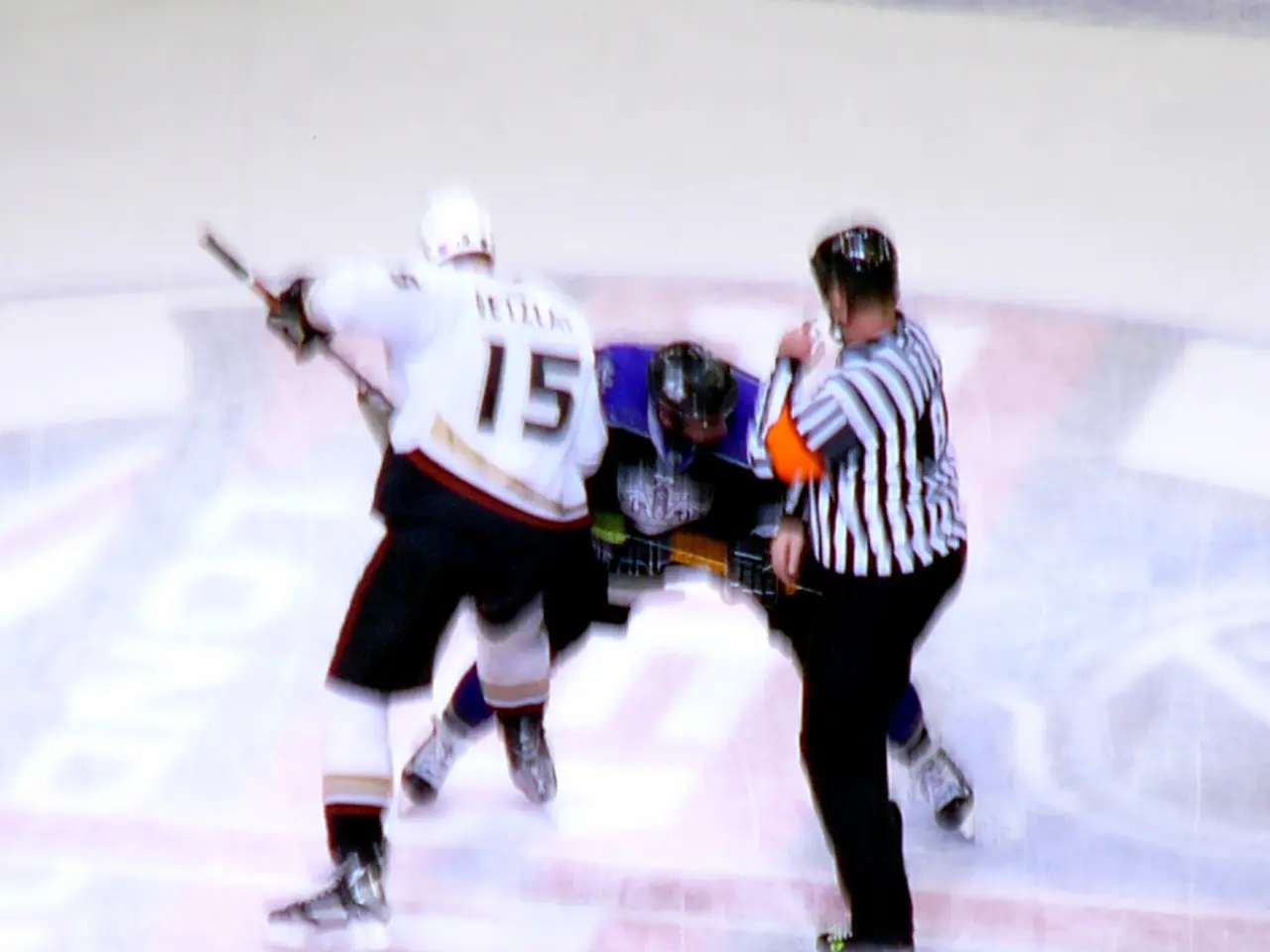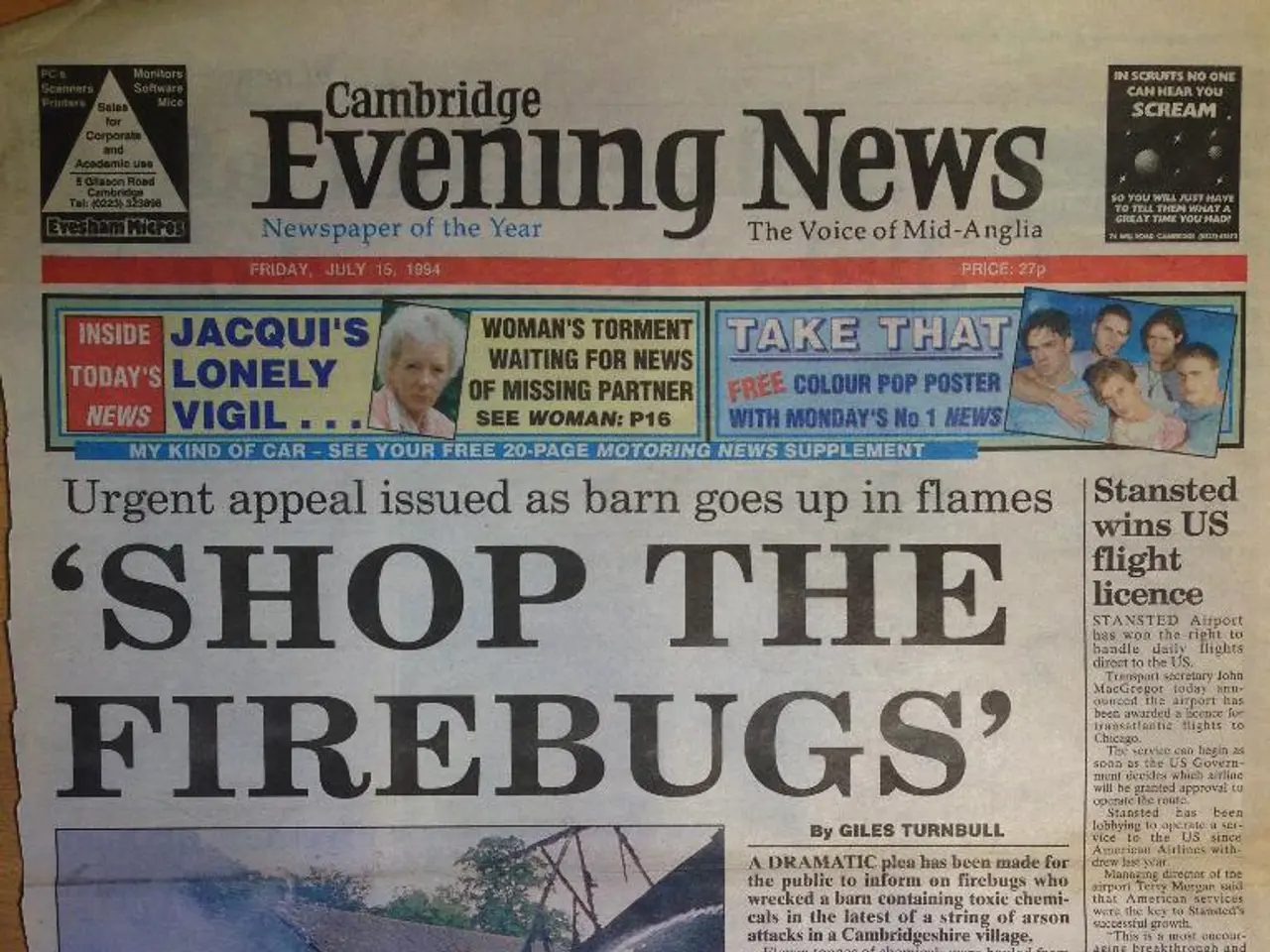United Front Temporarily Unified: Europe's Shaky Alliance with Trump Over Putin
Potential turbulence looms in Europe's newly formed alliance with Trump
In an apparent attempt to unite and exert pressure on Russian President Vladimir Putin, Western allies are seeking to bring Donald Trump on board. This push, however, raises questions about the stability of this alliance.
Recently, French President Emmanuel Macron shared a picture on Instagram of his conference call with President Trump, convened in Kyiv with important European allies involved, including Chancellor Friedrich Merz. This symbolic display of unity is seen as a factor that may be putting added pressure on Putin.
United States Joins Diplomatic Fray
The surprise joint visit by Merz, Macron, British Prime Minister Keir Starmer, and Polish Prime Minister Donald Tusk to Ukrainian President Volodymyr Zelenskyy was received with relief as it looks like the superpower and the Europeans might finally be coming together again. Together, they have demanded a 30-day unconditional ceasefire, threatening Russia with harsh new sanctions and an expansion of weapons deliveries to Ukraine if Putin does not comply. “This is the largest diplomatic initiative in recent months, if not years,” Merz stated in ARD’s “Tagesthemen” during his first days as Chancellor.
Putin has responded with a proposal for direct negotiations with Ukraine. The question is where this proposal will lead. As of now, the summit participants have initially rejected Putin's counter-proposal - insisting that talks will not begin unless the fighting halts first.
President Trump Receives Praise
While there were differing opinions in Kyiv about the driving force behind the new dynamics in Ukraine, all parties unanimously lauded Trump for suggesting a 30-day weapons pause. Despite this apparent unity, America's role in Ukraine's ongoing struggle remains contentious.
Political analysts suggest that the situation is favorable for the United States, as there seems to be widespread displeasure directed at Putin from key figures present in Kyiv. Macron's call was intended to communicate to Trump that the Europeans, including Zelenskyy, are unified in their stance.
Escalating Tensions
The coming week will present a significant challenge as Europeans must decide whether to enforce stringent new sanctions if Putin desires direct talks with the invaded Ukraine instead of a ceasefire. To maintain their commitment, they must rally against Russia-friendly EU heads of government in Hungary and Slovakia. Meanwhile, Trump must decide whether he supports the Europeans in the event of escalation. The initial ceasefire demand was based on an assumption that Trump would ultimately recognize Putin's disinterest in peace with Ukraine should he reject the demand.
However, there's a possibility that Putin's offer of talks might be acceptable to Trump, as he primarily wishes to end the war—even under conditions that Ukraine and Europeans have so far refused.
- Russia
- Ukraine
- Friedrich Merz
- Vladimir Putin
- Emmanuel Macron
- Wars and Conflicts
- Attack on Ukraine
- Peace Talks
- Politics
- European Unity
- U.S. Influence
- Strategic Autonomy (EU)
Enrichment Data:
Fractures in the Western Alliance: Signs of Dissension
- The US's tone and actions towards Europe have contributed to European concerns regarding US reliability and the stability of the transatlantic alliance. This includes the US exclusion of Europe from Ukraine peace talks and the introduction of new tariffs.
- There are growing signs of a divide between the US and Europe that could impact future security collaborations.
- The recent statements and actions suggest a potential reevaluation of the long-standing transatlantic alliance.
Trump's Role in the Alliance: A Cause for Concern
- President Trump's comments and actions have been contentious, adding to European unease about the US's reliability.
- The US exclusion of Europe from Ukraine peace talks and the introduction of new tariffs have added to the tension.
Joint Efforts: Ways to Maintain a United Front
- The recent diplomatic efforts, including joint visits and discussions, signal an ongoing attempt to maintain a united front against Russia.
- The underlying challenges are the questions regarding US support and dependency on US military protection.
European Reactions: A call for Autonomy
- European leaders have exercised caution due to their dependency on US military protection.
- There is a growing call for the EU to assert its strategic autonomy in defense and trade, to counter potential risks from US unreliability.
- The concept of a European reassurance force for Ukraine underscores the need for clear security arrangements to deter Russian aggression.
- As the United States joins the diplomatic fray, European leaders are cautiously pushing President Trump to support a 30-day unconditional ceasefire in Ukraine, thinking that his recognition of Russia's disinterest in peace could further pressure Vladimir Putin.
- The efforts to forge a united front against Russia are not without fractures, as concerns linger over the stability of the Western alliance, especially in light of the US's exclusion of Europe from Ukraine peace talks and the introduction of new tariffs.
- European leaders, including Emmanuel Macron and Friedrich Merz, are striving to demonstrate their commitment to strategic autonomy, asserting the need for clear security arrangements and emphasizing the importance of maintaining a united front against Russia.
- Political analysts suggest that Putin's proposal for direct negotiations with Ukraine presents a unique challenge, as it might be acceptable to President Trump, who primarily wishes to end the war, potentially causing disputes among the Europeans regarding their approach to Putin and the ongoing conflict.







![Direct Sale of Books: Perspectives from Over 500 Writers [2025 Edition]](/en/content/images/size/w1280/format/webp/20250730202215_authors-selling-books-directly.jpeg)
